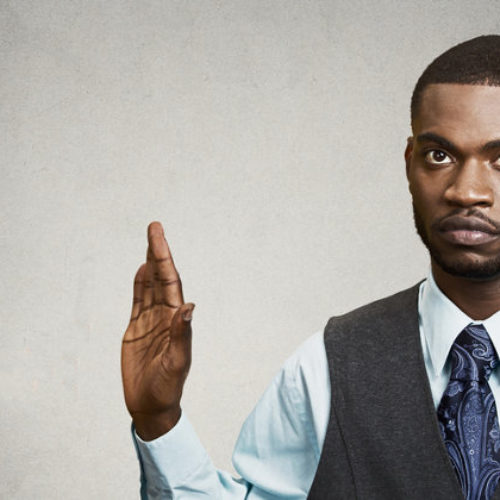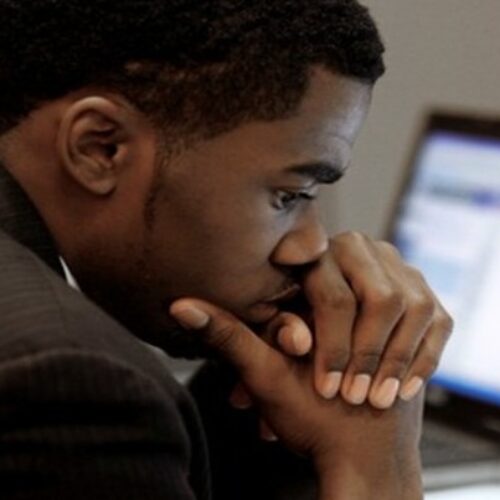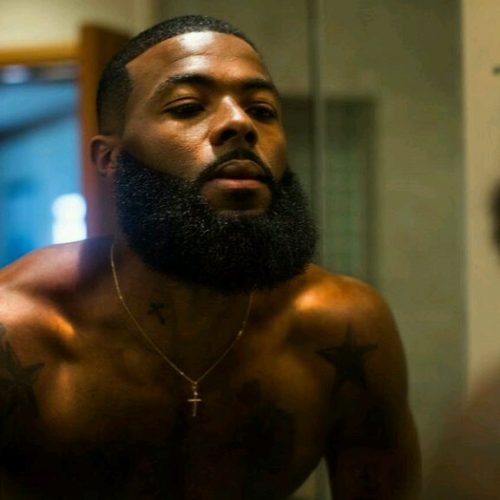WHAT IS IN A NAME? (A Personal Inquiry Into The Process Of Vilifying Words)
“What is in a name? That which we call a rose by any other name would smell as sweet.” (Excerpted from Romeo and Juliet by William Shakespeare)
A couple of years ago, a piece titled About Straight People And The Language of the Word “Fag” was published here on Kito Diaries. It was an interactive piece, one in which Rapum Kambili (the love of my life who doesn’t know it yet) and his friends in a Facebook group interrogated the right of straight people to call their queer friends “faggot”; this conversation came as a result of the rapper, Kendrick Lamar stopping a white fan of his from using the word nigger during his performance on stage. The piece was a deeply illuminating conversation that highlighted the importance of context, the process of reclamation and exclusion, and how some words can act as a trigger for traumatic memories. The conversation also reinforced my personal belief that some words – especially certain slurs – will always be inaccessible to some people because of the way they have been used in the past, especially in this new era of political correctness.
Political correctness has come to stay, and as a black and gay man, I fully support this movement. Sure, some people argue (especially in light of recent events) that political correctness is nothing more than window-dressing, but enforcing political correctness has helped us see misogynists, racists and homophobes silenced in places where they used to thrive. Yes, it does not take away a person’s prejudice, but it shuts them up. It means, for instance, that queer men and women in corporate workspaces do not have to be subjected to verbal insults every day. It means that celebrities can miss out on opportunities because of prejudices that they have shown in the past, especially now that we have the internet that never forgets. It doesn’t exactly balance out the world, but it makes it a bit better, and that is enough for me; wobbly baby steps rather than immobility any day, any time. Personally, the process of learning to be politically correct has been more about unlearning a lot of behaviour I thought was previously acceptable, and it has opened my eyes to a lot of unhealthy elements in my upbringing.
However, no movement or concept is beyond interrogation and reformation, even political correctness. I believe that it is through questioning things that we can expand our horizon. And recently, an issue came up that I would love everyone to weigh in on.
On Sunday, May 17th, during an Instagram Live chat, Walter Ude from The Minority Report Nigeria was narrating his experience as a child growing up in Nigeria, and in his description of himself, he used the word “effeminate” over and over again. As he was speaking, he was interrupted by his host, Xeenarh Mohammed from TIERs, who said that a woman in the comments section of the Live was objecting to the use of the word “effeminate” and she had asked if he would use the word “feminine” instead. It was puzzling to me, this trade of “effeminate” for “feminine”, because it implied that one word was a slur and the other a mere qualifier; it implied that feminine is more politically correct than effeminate. Walter complied and proceeded to use the word “feminine” instead, but it was obvious that the decision did not sit well with him. It definitely did not sit well with me. Before this time, I had always considered the word “effeminate” a non-derogatory qualifier for a man who has certain attributes that resemble those typically associated with women. A quick Google search proved me wrong. Effeminacy, according to Wikipedia, is “typically used implying criticism or ridicule of this behaviour”.
Somehow, the word has been vilified and had evolved into a slur. This raised a lot of questions for me in the context of Walter’s correction.
The first question was about the determination of the badness of a word. Who gets to say that a word has crossed the line from adjective to slur? I like to think that that decision is the prerogative of the intended victim of the word, and that decision is made because of the history of a word, like Rapum’s discussion points out.
Has the word “effeminate” been used as an insult to queer men over the years?
Maybe. Not the word itself but variations of it, like woman-wrapper, o me ka nwanyi, boy-girl etc. I am also reminded about Grindr profiles that blatantly use the exclusionary phrase “no femmes” in the same breath as the phrase “no fats”. In that sense, the word “effeminate” might be problematic.
Then, why didn’t I feel like I would be insulted if a person called me effeminate? Why did Walter feel comfortable using the word “effeminate”?
The answer came easily: for the word to sting, there has to be underlying misogyny of sorts – the belief that to behave like a woman is less than behaving like a man because women are beneath men. As an intersectional feminist, I do not have that underlying sentiment, so the word in itself holds no insult for me. Of course, it is important to note that coming to this realization took a lot of unlearning and reading, but I am glad that I am in this headspace. I also acknowledge that the experience might be different for another queer man who has not yet arrived at this realization.
Next comes the question of who is allowed to use a word that has been deemed offensive. Again, I think that is also the prerogative of the intended victim of the word. While I can joke around with the word “bitch” when I am with my male friends, I am hesitant to use it, even in jest, with my female friends. This is because of the troubling history that women everywhere have with that word.
But if a female friend of mine were to use to word “bitch” on herself, would I jump in and correct her?
No. I definitely would not. I would see it as a way of taking the knife out of the hand of the murderer and playing with it. Like Chiedozie pointed out in the discussion with Rapum that I mentioned earlier (you really should check out that post), we simply cannot abolish these words overnight. Why was Walter then corrected for using the word “effeminate”? If he is the intended victim, is it not his right to take the word and use is as he deems fit? Is that not also an “act of radical resistance”?
Then, I was left with the question of whose right it is to enforce political correctness. Who is allowed to speak up about a breach of political correctness? I think everyone should. That woman in the comments section of the Instagram Live had every right to speak her mind about the use of the word “effeminate”. But what makes the difference between an actual desire to see positive change and mere virtue signaling for me is the ability for a person to be willing to learn more and acknowledge that their position on an issue might be better modified. I acknowledge that Walter’s correction might have come from a good place. I like “not-on-my-watch” energy because it has been instrumental in making safe spaces for people. I respected Walter’s graceful decision to change the word and not allow that incident to distract him from the purpose of the Instagram session. But, I also think that this incident is a doorway to a larger discussion on whether that correction was necessary, on whether we are not reinforcing misogyny by vilifying the word “effeminate”. This a grey area, and I need a bit of light to make it clearer.
And what better place to discuss this than here on Kito Diaries, a platform where gay men are more qualified than anyone to speak about such issues. Please, share your views so that we can all learn together.
Thank you.
PS: Am I the only one who thinks Rapum is so hot? ???
Written by TJ
About author
You might also like
MAN, KNOW THY ENEMY
Hi. Sensei here. I want to tell you something that has been troubling me lately. Shall we begin? I don’t know about you, but living in this world is not
THE INTERVIEW
After a successful interaction between the interviewer and I… The interviewer: We’ll call you on Monday. Me: Thank you very much, sir. I am rising from my seat, when –
The Destination Of Me
i. On my forehead is an inscription that screams Q-U-E-E-R – apparently visible to everyone but me. They say I’m pretty, with the brows and the lashes. I roll my










8 Comments
Fred
June 15, 08:23I have watched LGBT movies where gay people said that “WE’VE OWNED THOSE WORDS NOW. THEY’RE NO LONGER INSULTING TO US”.
Political correctness has come to stay so slurs will only offend people with thin skin, complex issues and insecurity issues. If you make haters (I’m talking generally now) feel you weren’t even hurt in the slightest, they’ll get it and would definitely get tired of using words intended to hurt at you. In other words, they’ll shut up. It’s an attitude thing.
I’ve never been so hurt because I’m masculine. But there was a time in my University days when a coursemate asked if I was a fag. I was flustered on the inside but I said YES! Others around shut him up and questioned his state of mind. He later apologized and I moved on.
There’ll always be haters but is your skin thick enough to handle them?
aquariuspoet
June 15, 08:32I thought “effeminate” was the proper/right word for girly boys, but I was taken aback that I had been identifying with the wrong adjective and not feminine. it was insightful, or I’m not sure if “feminine” fits also.
Mandy
June 15, 08:38Who says it’s the wrong adjective? Just because some people have chosen to vilify it doesn’t mean it’s a wrong thing to identify with. In fact, it is the fact that you’ve always been comfortable with the word, that gay men who have female attributes have had no issue with the word, that makes this whole “crusade” against the word “effeminate” ridiculous.
For the negativity of a word to work, the people who it’s targeted at have to feel shame from being called that. And the fact that even them readily identify as effeminate means there’s no shame there. So wtf!
Mandy
June 15, 08:43I watched that Live, and my first question when Xeenarh corrected Walter was, “OK who’s this tatafo that’s interrupting another man’s identification of himself?”
Then I checked the comments, and it was a woman. And her reasoning was that she was uncomfortable with the word.
And I’m thinking, “What’s the business of a woman telling a gay man how to identify himself? How would a woman feel if a gay man saw her calling herself a “bad bitch”, and he corrects her and tells her not to use that word because HE’S uncomfortable with it?”
The double standards stinks.
Chiedozie
June 15, 11:471) I don’t agree that political correctness exists to shut oppressors up. At best that’s an unintended consequence.
Political correctness comes from realizing that the oppression/discrimination of a certain group forms part of the culture of the place where such oppression/discrimination takes place and, as such, embeds itself in cultural aspects, including language. Political correctness is a symptom of social/cultural shifts.
2) The writer seems to be treading the fence with his opinion, but the truth is there is no excuse for such policing of speech. If someone, without irony, chooses to describe himself with a word that can be used in a derogatory manner against him, it’s his prerogative. If it’s causing your nose to sweat, it sounds like a YOU problem.
To presume to force someone to drop a word because it triggers you, an unaffected person, on his behalf is the height of thoughtlessness.
Jinchuriki
June 15, 18:58In my experience. Most Nigerian men would use feminine for another man as an insult -especially a lot of masc gay men who cannot see beyond their forehead where ego is labeled- and they’d use effeminate when they have to be formal so this is an interesting and enlightening read for me.
I’m just surprised I did not see more comments.
Uzor
June 17, 15:34I guess the idea there was engaging the fact that the session was made for public consumption. It’s just like how black people aren’t allowed to use the word “nigga” in formal broadcasts for public consumption and if they do, it’s censored. I don’t think it was really an attempt at schooling gay men about their Identities, it was more about making the piece digestible for a variety of audience.
Pink Panther
June 17, 15:52First of all, the commenter who asked for the correction didn’t do so because of the audience. She did so because SHE felt uncomfortable with what a gay man was saying about himself. I want you to take a moment to digest that.
And secondly, “nigga” and “effeminate” by no means belong to the same level of unpalatableness. Even if the woman was asking for the correction because of an audience, it’s not like Walter was saying the word “fag”. That one is outrightly offensive. everyone knows it’s a slur. But until this piece was published, most gay men felt very comfortable identifying as effeminate. Why? Because it’s never been recognized as a slur. So it had no audience to protect it from.